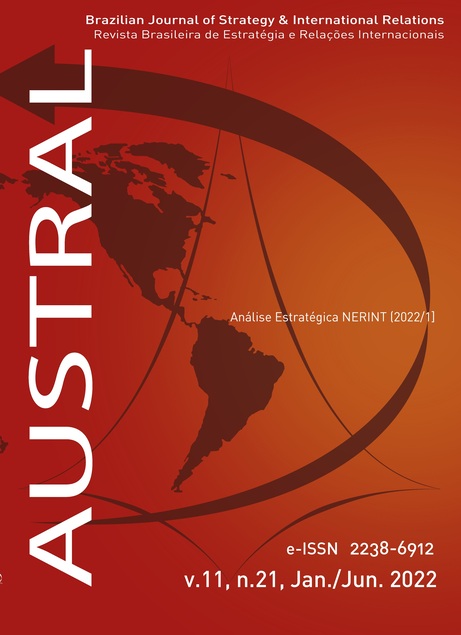THE SYSTEMIC CYCLES OF ACCUMULATION IN THE WORK OF GIOVANNI ARRIGHI: THE 2008 CRISIS, THE END OF US HEGEMONY AND THE ROLE OF CHINA
DOI:
https://doi.org/10.22456/2238-6912.125358Abstract
This article discusses the theoretical-conceptual references in Giovanni Arrighi’s work, especially systemic cycles of accumulation and their impact on international relations. It is hypothesized that the terminal crisis of the US accumulation regime was marked in the 2008 crisis. As the main objective of this work, it is intended to contribute to the debate on the succession of SCAs, terminal and signal crises and hegemonies of the World-System, through a descriptive-analytical method, reviewing the main works of Giovanni Arrighi on the subject. It is concluded, in the end, that, in fact, the 2008 crisis fits the concept of terminal crisis and that, therefore, a SinoAmerican SCA emerges after the financial crisis, uniting elements of symbiosis, nonhegemony and multipolarity. Finally, this study is justified as it deepens the debate on international economics, international relations theory and recent international politics.


